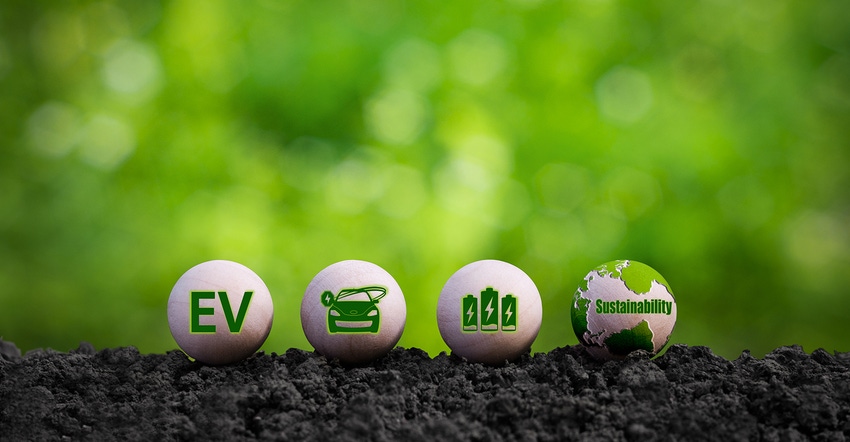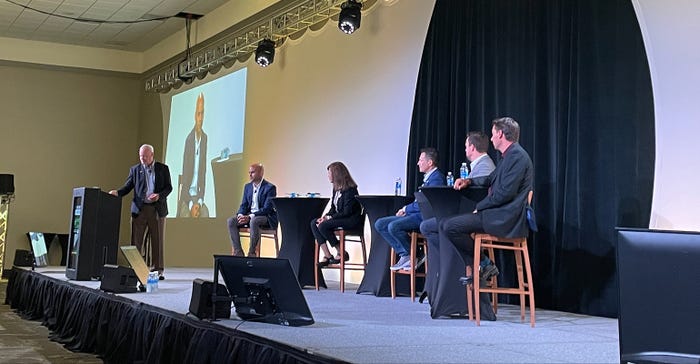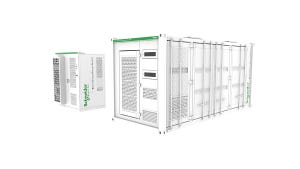The Future of EV Battery Recycling: Expert Insights
Explore the future of EV battery recycling, business models, and the evolving second-life battery market with insights from industry experts at Toyota, Ford, ABTC, and more.

As the electric vehicle (EV) market continues to grow, concerns regarding the environmental impact of EV battery disposal have drawn attention to the emerging field of battery recycling and during a recent panel discussion at the Battery Show North America, titled “Overcoming hurdles in advanced battery recycling,” industry experts offered valuable insights into the future of this critical sector.
The evolving landscape of battery recycling
Recycling lithium-ion batteries is technically feasible and commercially viable, given the many benefits it offers. As more companies enter the battery recycling space, a diverse range of facilities, capabilities, and approaches will emerge. Mike O'Kronley, CEO at Ascend Elements, said, “It's crucial to recognize the distinctions among recycling, resource recovery, and advanced materials production.” O’Kronley noted that as the industry grows, different supply chains and customers will have varying needs, some requiring advanced materials and others opting for more traditional commodities. This evolving market is set to accommodate diverse recycling capabilities and technologies to meet the demand for returning these critical materials to the supply chain at various points.
According to Ryan Melsert, CEO at ABTC, when it comes to recycling EV battery cells, modules, and packs, the process becomes considerably more intricate. Melsert said, “As technology advances, batteries are becoming more energy-dense and volumetrically efficient, incorporating improved thermal management systems. This complexity is further accentuated as we shift toward cell-to-pack technologies, where the vehicle becomes an integral part of the battery. Companies that have the highest performance recycling technologies can recover even more of the elements and lower cost.”

Business models for battery recycling
The panel discussion also delved into the various business models for battery recycling, focusing on two primary approaches: the tolling and closed-loop models.
Tolling Model: In the tolling model, recycling plants process batteries from third parties, typically battery owners or manufacturers. Recyclers charge a fee for their services and return the processed materials to the owners. This model offers a straightforward way for owners to recycle batteries without taking on the market risk of buying and selling materials.
Closed-Loop Model: The closed-loop model involves taking ownership of the materials entering the recycling plant, thereby assuming market risk. This approach is favored by original equipment manufacturers (OEMs) looking to secure a supply of recycled materials to meet regulatory requirements and incorporate recycled content into their products.
Elliot Ethridge, VP of Global Sales at Ecobat, believes that OEMs have a vested interest in managing the material from recycled batteries because the material is essential for ensuring compliance with IRA regulations and meeting their recycled content targets. But Ethridge also said, “Open-loop contracts still have a place in the industry. Striking a balance between both types of contracts is essential for businesses to navigate fluctuations in commodity pricing. Achieving this balance is crucial for the sustainable growth of battery recycling operations.”
The business models for recycling batteries are evolving, with some recyclers focusing on one approach while others balance the tolling and closed-loop models. As highlighted during the discussion, the key is to strike the right balance and adapt to the specific needs of customers and market dynamics.
The evolution of the second-life battery business
Giving used EV batteries a second life in non-automotive applications has gained attention recently. However, the panelists expressed interesting opinions on the viability and scale of the second-life battery business.
Gerardo Ramos, Battery Lifecycle Senior Manager at Toyota Motor North America, thinks that the second-life battery business is a challenging topic. Still, it doesn't mean that Toyota is not already working on finding solutions. Toyota is considering the feasibility of future second-life applications utilizing lithium-ion batteries. Ramos said, “Toyota TMC in Japan has developed a secondary storage unit in partnership with JERA, a major utility company in Japan.”
On the other hand, Renata Arsenault, Technical Expert for Advanced Battery Recycling at Ford, sees potential in repurposing batteries, particularly for lower-cost EV batteries like lithium iron phosphate (LFP). Given their performance and cost advantages in such scenarios, she believes these batteries could find a new life in stationary energy storage applications. Arsenault said, “I think the challenges in implementing second-life applications using lithium-ion batteries are significant and continue to grow as we learn more. And I'd much rather see a second-life application deployed in a field with a solar farm than in somebody's garage.”
The consensus seems to be that the second-life battery market may not become as expansive as initially envisioned. Instead, the focus might shift towards finding suitable niche applications for repurposed batteries, especially in cases where their attributes align with specific needs.
The future of EV battery recycling presents both challenges and opportunities. Establishing the correct business model is paramount in this field. Although the second-life battery market may not reach its initially expected scale, it remains a valuable component in stationary energy storage. With the ongoing evolution of the EV industry, recycling and repurposing strategies will adapt, contributing to a more sustainable future for electric vehicles.
About the Author(s)
You May Also Like





